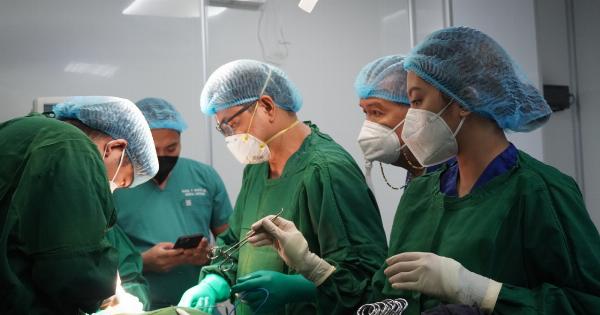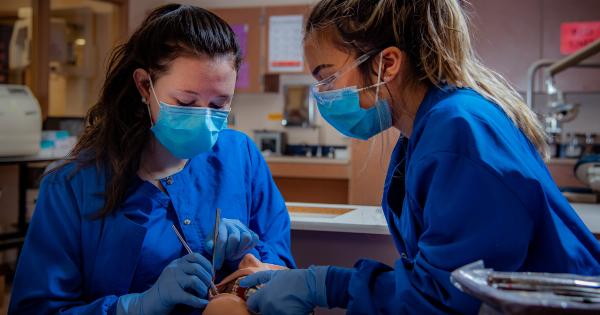Montreal’s Jewish General Hospital has announced a revolutionary new microsurgical heart procedure. This procedure represents a significant advance in cardiovascular surgery and holds great promise for heart patients worldwide.
The procedure, called the Montreal Heart Institute protocol, was developed by the hospital’s cardiac surgery team, under the leadership of Dr. Anique Ducharme.
What is the Montreal Heart Institute Protocol?
The Montreal Heart Institute protocol is a minimally invasive procedure that offers hope to heart patients who previously had little chance of survival.
In the past, traditional heart surgery involved making large incisions in the chest to access the heart. The Montreal Heart Institute protocol, on the other hand, involves making tiny incisions that are just a few millimeters long. A small camera is then inserted into one of the incisions to allow the surgeon to see inside the chest cavity.
The surgeon uses specially designed instruments to repair the heart through the small incisions, without having to open up the chest.
How Does The Procedure Work?
The Montreal Heart Institute protocol is performed on a beating heart, without the need for a heart-lung machine.
This is a significant advantage over traditional heart surgery, which requires the use of a heart-lung machine to keep the patient alive while the heart is stopped. There are several steps involved in the procedure:.
- The surgeon makes several small incisions in the chest wall.
- A small camera is inserted through one of the incisions. The camera allows the surgeon to see inside the chest cavity.
- The surgeon uses specially designed instruments to repair the heart through the small incisions. This may involve repairing or replacing a valve, removing blockages, or repairing the walls of the heart.
- The surgeon closes the incisions with small sutures or staples. The whole procedure takes around two to three hours.
Benefits of The Montreal Heart Institute Protocol
The Montreal Heart Institute protocol offers several advantages compared to traditional heart surgery:.
- Less pain: The small incisions used in the procedure cause less pain than the large incisions required for traditional heart surgery.
- Shorter recovery time: Patients who undergo the Montreal Heart Institute protocol can expect a faster recovery time, as they do not need to spend as much time in the hospital following the procedure. In many cases, patients are able to return to their daily activities within a few weeks of the surgery.
- Lower risk of complications: The Montreal Heart Institute protocol is associated with a lower risk of complications than traditional heart surgery. This is because the small incisions used in the procedure are less traumatic to the body, and there is no need for a heart-lung machine.
- Improved quality of life: Patients who undergo the Montreal Heart Institute protocol often report an improved quality of life following the procedure. This is because the procedure is less invasive than traditional heart surgery, and does not require a long period of recovery.
Who Qualifies for The Procedure?
The Montreal Heart Institute protocol is suitable for patients who require heart surgery, but who are not candidates for traditional heart surgery.
This may include older patients, or patients with underlying medical conditions that make traditional heart surgery too risky.
How Many Patients Have Undergone The Procedure?
The Montreal Heart Institute protocol has been used to treat over 200 patients at the Jewish General Hospital to date.
The procedure has a success rate of over 90%, with most patients experiencing a significant improvement in their quality of life following the surgery.
What Are The Risks Associated with The Procedure?
As with any surgical procedure, there are risks associated with the Montreal Heart Institute protocol. These risks include bleeding, infection, and damage to surrounding organs.
However, the risks are generally lower than those associated with traditional heart surgery.
What Does The Future Hold for The Montreal Heart Institute Protocol?
The Montreal Heart Institute protocol represents a significant advancement in cardiovascular surgery, and holds great promise for heart patients worldwide.
The procedure is already being used to treat patients at the Jewish General Hospital, and it is expected to be adopted by other hospitals in the near future.
In the coming years, the Montreal Heart Institute protocol is likely to become the gold standard for minimally invasive heart surgery.
This will not only benefit heart patients, but it will also reduce the burden on healthcare systems by allowing patients to recover more quickly and return to their daily activities sooner.
The Bottom Line
The Montreal Heart Institute protocol is a revolutionary microsurgical heart procedure that offers hope to heart patients worldwide. The procedure is less invasive than traditional heart surgery, and has a shorter recovery time and fewer complications.
Patients who undergo the Montreal Heart Institute protocol can expect to experience significant improvement in their quality of life following the surgery. As medical technology continues to advance, it is likely that procedures like the Montreal Heart Institute protocol will become more widely available, offering hope and relief to patients who previously had little chance of survival.




























